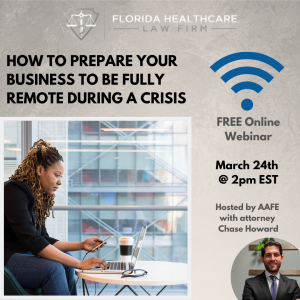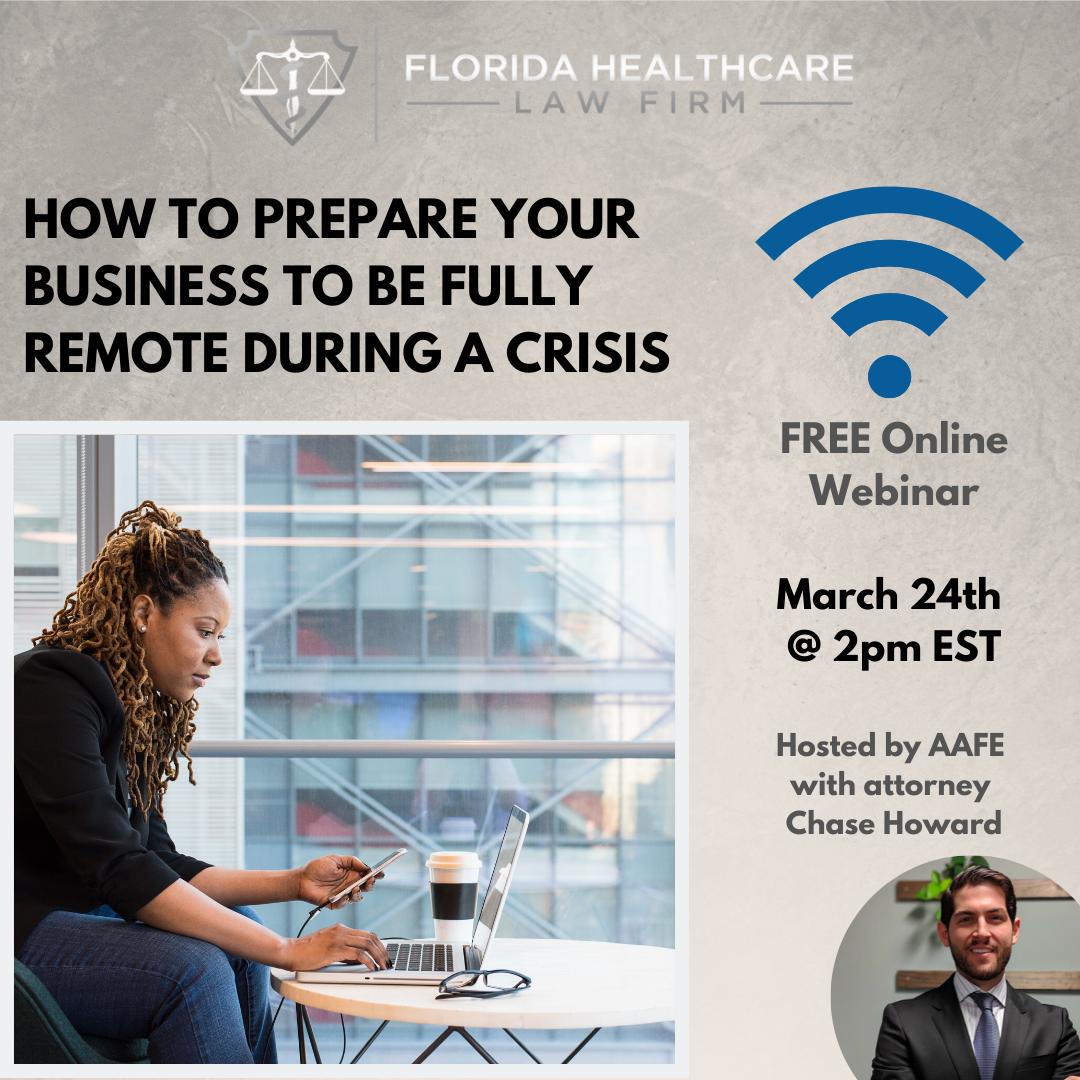 Join Florida Healthcare Law Firm Attorney Chase Howard on our free webinar titled “How can you transform your business to be prepared for future situations like COVID-19?”
Join Florida Healthcare Law Firm Attorney Chase Howard on our free webinar titled “How can you transform your business to be prepared for future situations like COVID-19?”
Faced with the reality of remote operation, we’ll talk about how your business prepare to thrive in a similar scenario in the future.
- What to do with remote staff when it comes to contracts, operations and patient privacy.
- How do Federal regulations impact telework.
- Could expanded telehealth laws ease the transition to remote care in a future crisis.
Presenter: Chase Howard, Esq. is an Attorney at the Florida Healthcare Law Firm and has focused his legal practice on health law, medical malpractice defense, business law, and contracts. He deploys crucial skills gained through hands-on business experience in the medical tech world to service clientele such as medical spas, medical practices, medical technology businesses, healthcare business entities, physicians, chiropractors, and dentists. Chase’s experience working in University of Miami Health System’s Risk Management Department provided him with a strong understanding of legal compliance in the healthcare world as well as experience in liability assessment, prevention and defense. With his multi-specialty background, Chase’s practice focuses on all aspects of transactional Health Law, MedSpa Start-up and consulting, general business law, and MedTech.
- Webinar coming up next month – Prepping Your Dental Practice for Sale | April 22 @ 12:00 pm – 1:00 pm Eastern
- Past webinars – free downloads




 As many healthcare businesses invest in their websites, two areas that are often added as a quick afterthought (or overlooked completely) are the Terms of Use and Privacy Policy. But
As many healthcare businesses invest in their websites, two areas that are often added as a quick afterthought (or overlooked completely) are the Terms of Use and Privacy Policy. But